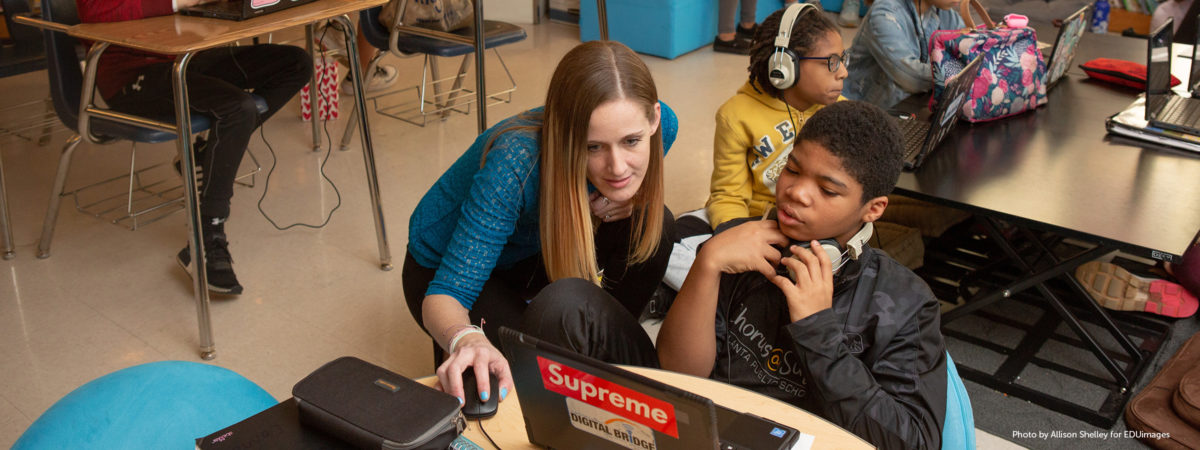
June 15, 2021 | By Sierra Noakes
This led Digital Promise to co-design Product Certifications with educators across the country. We worked together to identify the areas that matter most to educators, define the criteria to earn each certification, and build a system to vet well-designed products best suited to support meaningful learning.
In May 2021, we spoke with nearly two dozen product teams that have earned Digital Promise’s Research-Based Design Product Certification to learn about their experiences so far. Among the benefits products described from earning the Product Certification, three major themes stood out:
Product companies need third-party, external validators to be trusted by edtech decision makers, purchasers, and users. Digital Promise Product Certifications are credible and independent verifications that a product’s design is based on research about learning.
“The value of the Research-Based Design Product Certification for us has been a validation of the fact that learning sciences research is fundamental to our approach.” – Elizabeth Neiman (she/her), Vice President of Engagement, MIND Research Institute
Decision makers factor the Product Certification into their edtech selection when piloting and/or purchasing. Certified product companies agree that earning a certification has distinguished their products from others.
“It does enable us to have messaging so if we’re up against a solution that doesn’t have the research and certifications, we can say, ‘Are you sure you know what these guys do?’ It does put us at a competitive advantage in certain cases.” – Ben Grimley (he/him), CEO, Speak Agent
The Product Certification process helped teams create internal documentation about their design and better communicate priorities and goals. Many certified products appreciated the opportunity to intentionally collaborate to develop critical documentation aligning research, values, and product design. The resulting documents could then be leveraged to more effectively communicate the product’s vision and values as well. In multiple instances the certification highlighted internal learning to better communicate the product’s research basis publicly.
“The product certification process provided our organization – from product development to customer success – with a shared, research-based understanding of how students learn and BrainPOP’s role in supporting student learning.” – Barbara Hubert, Director of Professional Learning, BrainPOP
Edtech companies can apply today to earn the Research-Based Design Product Certification and Learner Variability Product Certification.
By Elliott Barnes and Sara Mungall